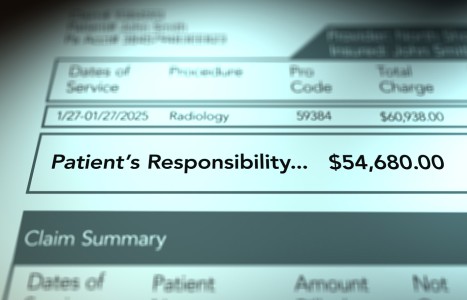Recent laws in New Jersey and California represent a disturbing trend that will negatively impact a practice’s ability to collect monies from patients, as well as expose them to significant penalties if the practice does not follow the mandatory guidelines to a T. Please be aware that a similar law may be coming to your state. The time to act is before the law is passed.
"DC" Greets New Columnist and MPI Faculty Member
"DC" welcomes Donald R. Murphy, D.C. as our new myofascial pain syndrome columnist. In conjunction with his monthly column, Dr. Murphy will teach the MPI weekend myofasical seminars.
Dr. Murphy received his doctor of chiropractic degree from New York Chiropractic College (NYCC). He is a certified chiropractic sports physician and diplomate of the American Chiropractic Academy of Neurology. Dr. Murphy has taught extensively at NYCC in biomechanics, motion palpation, neurophysiology and myofascial disorders, and teaches a postgraduate course, "The Neglected Muscular System" which deals with diagnosis, treatment, and rehabilitation of trigger points and other muscular dysfunction.
Dr. Murphy currently writes a column, "Literature Review of the Month" for the Faculty Update, the NYCC faculty newsletter.
Dr. Murphy is a member of the ACA, the ACA Council on Neurology, the ACA Council on Sports Injuries and Physical Fitness, the New York Chiropractic Association, the Chiropractic Society of Rhode Island, and the American Back Society, among others.
NYCC has honored Dr. Murphy with the Distinguished Service Award, and the Chiropractic Technique Award. He has been the recipient of the Wendy Fein Memorial Scholarship and the Frank DeGiacomo Scholarship Award. He is the president of NYCC's Motion Palpation Club, and president of NYCC's Committee on Transformation.
Dr. Murphy has focused special attention on clinical syndromes of the upper cervical spine; proprioceptive rehabilitation; low back pain; sports injuries; disequilibrium syndromes; trigger points; muscular dysfunction; scoliosis; and TMJ dysfunction syndrome.
We know our readers will enjoy his articles and look forward to attending his seminars.


